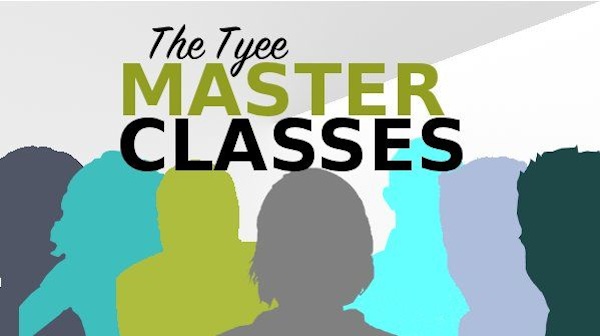

There’s a certain “why not us” feel to The Tyee’s plan to start offering classes to its readers. The Vancouver news site is known for being somewhat experimental in its approach to funding and producing its work, so hosting what they’re calling “master classes” in their newsroom just sort of fits.
The Tyee’s classes are made up of seven weekend courses led by the site’s staff and contributors. Topics range from photography and memoir writing to document sleuthing and how to run low-budget political campaigns. (No intermediate Spanish or “release the poet in you” course.) The two-day workshops range in price from $195 to $395, and promise small classes that will give emphasize some type of hands-on training that will give people something more than a vague sense of accomplishment by Monday morning.
The Tyee is, of course, not the first news organization to try to extend its primary asset — its staff talent — into the tuition-driven world of education; The New York Times Knowledge Network goes so far as to let students get credits toward a bachelor’s degree at a partner institution. The Tyee’s effort is different largely in scale, focusing on its specific geographic — and to a degree ideological, since the Tyee is left-of-center — community. They’re reaching out to the type of person who would identify themselves as a Tyee reader, which, on top of the revenue possibilities, makes the master classes an experiment in community outreach and engagement as well.
“There’s a very real philosophy here at the Tyee of trying to be more than a one-to-many publication, but trying to open ourself up and be a positive member of the community,” Tyee editor David Beers told me. “That would be the high idea of it. We also want to make money.” Journalism produces knowledge, but it can also produce skills and information useful in civic life. “Anytime we offer a class we want to offer people an opportunity to up their skills to be more effective,” Beers said.
The Tyee also wants to build a stronger bond between the publication and its community — something a couple days in close proximity with the person behind a byline can accomplish. While the Tyee strives to grow its audience, Beers said they’re realistic in knowing it appeals most to a limited niche. That makes it more important to maximize the value of those relationships.
“The Tyee has been in business since late 2003, so people have had quite a while to get to know the quality of the work our community of contributors produce,” he said. “This is another way of giving people access to those insights.”
So who is a Tyee reader? Beers said they may be someone concerned with social issues, sustainability, politics and, not surprisingly, personal growth. All of that is reflected in the courses they offer, but also the cost of the courses, which are in line with other adult education offerings in the Vancouver area.
Considering the price tag of the courses, if they manage to fill half or all of the 20 seats per class, that could indeed give a significant boost to the site’s revenue — along with guaranteeing another round of master classes for the future. The Tyee’s small size gives it a degree a maneuverability when it comes to experimentation, Beers said. Courses will take place in the Tyee’s own newsroom, and many of the ancillary costs — materials, catering — are being covered by sponsors like Whole Foods. Julie Jenkins, who handles outreach for The Tyee, said the classes are a chance to connect with the site’s advertisers as well as readers.
“This was just a natural step for us. It’s very exciting,” Jenkins said.